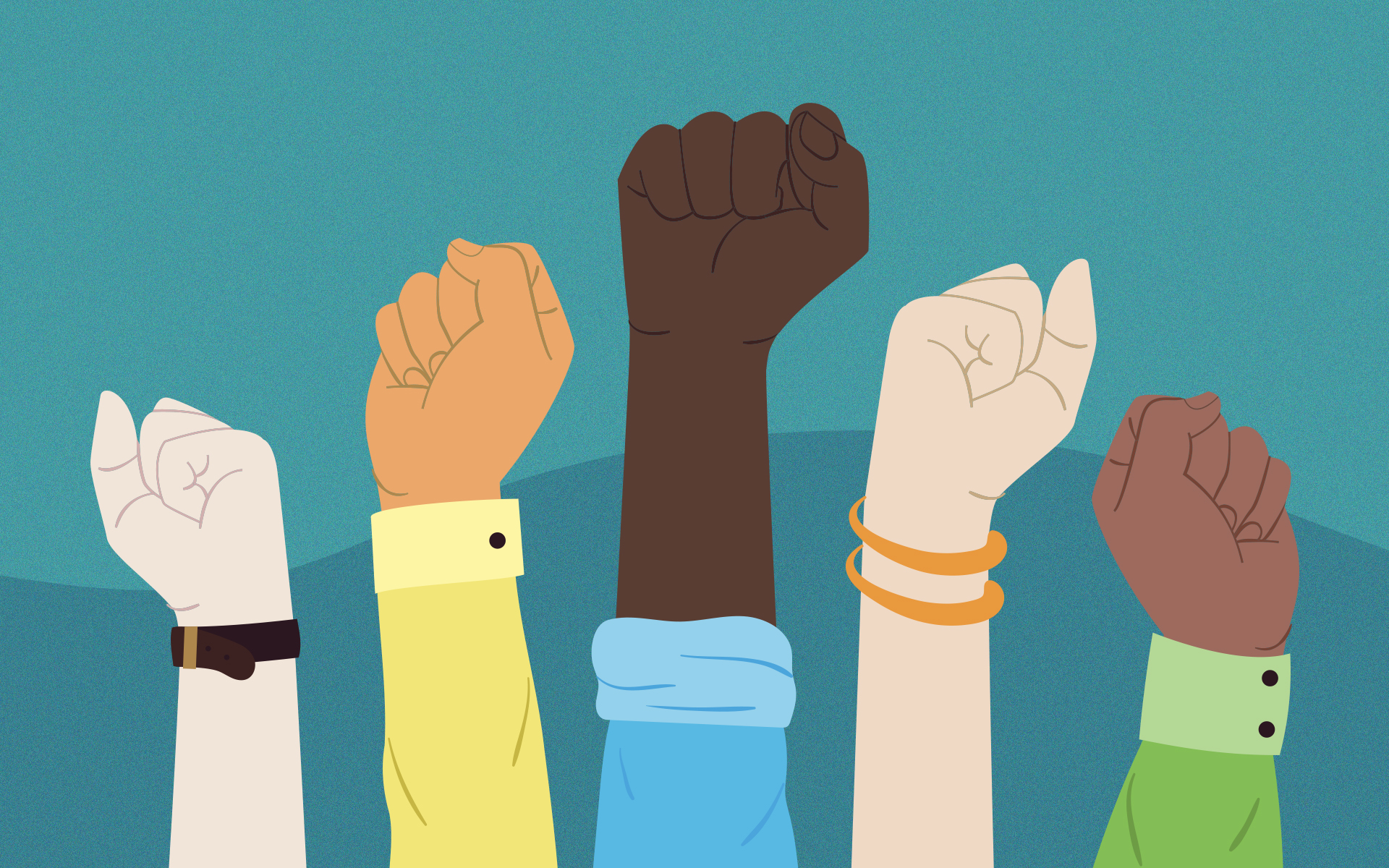Repeat after me: A better world starts with the best version of me.
Sounds a little self-centered, doesn’t it? Well, I want you to embrace that feeling for a moment. Let it settle into your body and make itself comfortable. Because I’m here to help you understand how focusing on your own health and wellness can lead to a better world.
Self-care. Say it out loud.
What Is Self-Care?
Self-care means asking yourself what you need and following through on the honest answer. Self-care can be as simple as getting to bed earlier on a work night, or as hard as taking a look at some of the habits you’ve created for yourself and their long-term effects.
Self-care is essential. It’s human work we all need. Not just the activists among us, but every one of us who’s been paying attention for the last few years and watching our communities come apart. We all feel the weight of this time we’re living in, and we are all being called to do our part to ensure a more perfect Union.
Self-care is essential. It’s human work we all need. Not just the activists among us, but every one of us who’s been paying attention for the last few years and watching our communities come apart.
If you’re a socially conscious individual, or simply someone whose awareness has been running on all cylinders for the last few years and have experienced burnout, secondary trauma, or compassion fatigue (yes, these are all real things!), it’s time for you to gather your sisters and brothers and declare that 2019 is the year that you will learn to be a self-care taker so that you can continue to be an effective caretaker of our democracy. Being whole and meeting our own emotional and physical needs first, is the only way we will build the world we want to see in the future—together!
Self-Care is a Radical Act of Love
As a community organizer and political and social justice activist, one of the ways I know I can contribute is by sharing some of the self-care tools I’ve learned over the past two years. This “Self-Care for Politically Charged Times” series was borne out of my own personal plight with burnout and compassion fatigue—riding high and fully charged in 2016, sputtering through most of 2017, and, finally, experiencing complete burnout in early 2018.
I had reached a point where I needed some serious self-care and a personal recharge if I was going to have any momentum in time for the 2018 primaries. This experience resulted in a promise to myself that I would never go back to a place of ineffectiveness, defeat and malfunction—and a promise to do whatever I could to ensure that no one is left behind, feeling depleted, exhausted, and hopeless.
We are creating the world we want to see by sowing seeds of love. And that can only be done if we include love for ourselves in the mix. Our rallying cry for 2019 is: Self-Care is a radical act of love.
For me, personally, I’d continue that sentence by saying “Self Care is a radical act of love that increases my capacity for impact!”
But self-care means something different to everyone. That’s one of it’s most transformational and unifying properties. What will focussing on self-care allow you to do this year? What will your impact be?
We know that self-care is good for us—it increases our emotional and physical health, it builds resilience, and paves the way for kind, compassionate engagement with the world around you.
Self-care is not always fun, sometimes it’s boring, guilt-inducing, and very heavy. By prioritizing self-care you’re making a choice to nourish the core of your being, tap into your sense of humanity, community, and responsibility for our path forward, and communicate with compassion across seeming political divides so we change our future for the better. Are you ready?
The Five Rules for Self-Care in Politically Charged Times
1) Your “Self” is Bigger Than You
We feel guilty about self-care because it goes against everything we’ve been taught about being a good human being, let alone an effective activist. Self-care means putting ourselves first and we’ve been conditioned to believe this is wrong and selfish. Real change-makers are meant to suffer and endure hardship; proper nutrition, healthy relationships, and exercise are frivolous, right? Ghandi, Nelson Mandela, Martin Luther King, Jr., Malala Yousafzai—these individuals are forever linked to self-sacrifice and suffering. Martin Luther King, Jr. didn’t have time for self-care!
The word “self” has a negative connotation in this context because it seems to be only about the individual. But we need to expand our view of the “self” beyond the individual to include everyone we touch: our families, our communities, the whole of the natural world. When we practice self-care, we hone our interactions with everything around us: we protect the world around us. Imagine the powerful transformation that would happen if everyone took care in this way.
Self-care is not a virtue. It’s the means by which you make your work consistent with what you want to create in this world.
2) Self-Care is Inclusive
One of the main issues with the way self-care is viewed today is that it’s mostly geared toward women who are white and of means. It’s become associated with the purchase of goods and services that are indulgent and frivolous. This is one of the reasons self-care is also seen as an “occasional” practice.
But let me be clear: self-care is for everyone—men, minorities, people of color, and individuals who are struggling to make ends meet.
Self-care is a collective goal, not a commodity good. In order for us to collectively be successful, this is an essential paradigm shift that needs to happen. Only when the organizations we support, run, and invest our time and money in start viewing self-care as a pillar rather than a luxury, will we begin to see liberty and justice for all. Only when we each take responsibility for ourselves and our compassionate hearts, will we be able to achieve our unalienable rights of life, liberty, and happiness.
3) Self-care is Not Self-Indulgence.
Merriam Webster’s defines self-indulgence as the “excessive or unrestrained gratification of one’s own appetites, desires, or whims.” Self-indulgence is usually comprised of behaviors that alter our mood or provide us with a means of temporary escape.
How can you tell the difference between indulgence and true acts of self-care? Ask yourself if the act is a quick-fix or something that truly serves you. Does the quick-fix yield long-term benefits or is it potentially harmful? And then, once you figure out what will truly serve YOU, fight the urge to feel guilty about doing it. The truth is, doing what serves you is actually a selfless act—One that will make you a more engaged and impassioned person.
4) Self-Care is Difficult and Worth the Work
Self-care can be really hard because it’s a long-term play. Ironically, so is our political and social justice work. We all know that very rarely if ever, do landscapes change overnight, but we fail to understand that this also applies to well-being. It is much easier for us to make decisions that feel good right now (“quick-fixes”) than it is to have the discipline to make decisions that may suck now but feel really great later.
Here are some examples of how self-care takes prioritization and discipline:
- Committing to only watching one episode of “Game of Thrones” and getting to bed at a decent hour so you get a full night’s rest.
- Not always feeling the need to have a drink with dinner or saying no to that second drink at a party.
- Learning to say “no” when you don’t want to or can’t do something.
- Waking up early so you have time to meditate, journal, or work out.
5) Self-Care is Not One-Size Fits All
If you are thinking that you have to start giving up most of your vices in order to truly dedicate yourself to self-care and to larger causes in 2019, the answer to a large-degree is yes. If the work we are doing in the world is larger than ourselves, then we must define clear boundaries that help ensure our long-term physical, mental, and spiritual health. If you’ve been doing something that causes you to think to yourself “I really need to stop doing this,” then this is your invitation to take your own advice. (Remember, I told you that self-care can be difficult)
That’s not to say there aren’t healthy indulgences we can enjoy. These are defined by small actions we can take that help us restore balance in our lives, and bring us joy and happiness. It can be spending an evening reading a good book, not responding to texts or emails for a few hours, or having a meal with a friend while engaging in meaningful conversation. None of these things are frivolous.
The point is this: self-care is not one-size fits all. Ask yourself what you need and then listen.
If you’ve read this far, then please take the next steps with me and Mindful on this self-care journey. This Friday at 11:30 am Eastern I’ll be live in our private Facebook group, leading a guided meditation and answering any questions you have about self-care, activism, building a community of care together. We’ve created this space for us to get together over the next 8 weeks, to prime ourselves for what’s sure to be a crazy few years. I hope to see you there.
MORE FROM SHELLY TYGIELSKI:
Week 2: “No” Is A Complete Sentence
“No” Is A Complete Sentence
“No” is a word most of us use too infrequently. And, what’s worse, when we say “No” we usually add on all sorts of wheedly explanations. But “No” is a complete sentence, and here’s why.
Read More
Week 3: Building a Community of Care
How to Find Your Self-Care Squad
Building communities of care creates a culture of compassion and accountability, inspiring you to be the best version of yourself.
Read More
Week 4: Recognizing the Signs of Burnout
Is It a Bad Day or Is it Burnout?
How to identify the symptoms and navigate your way through burnout.
Read More
Week 5: The Incredibly Courageous Act of Taking a Moment
The Most Courageous Self-Care Act: Learning to Say, “I Need Help”
We all know when we’re feeling overwhelmed, but learning to press the pause button starts with being vulnerable enough to claim your healing time.
Read More
Week 6: Designing Your Personal Wellness Plan
Why You Need a Self-Care Plan
Shelly Tygielski offers a three-step exercise to help you get started with your own self-care plan—no bubble bath required.
Read More
Week 7: How to Climb Out of Despair
Self-Care for Difficult Times
How to navigate your way around a black hole of hopelessness—Hint: you have to stare down the despair.
Read More
Week 8: Powering up the Movement
Transforming Self-Care into a Passionate Movement
Five steps we need to take in order to build a self-care movement that can bring positive change to our collective struggle.
Read More










